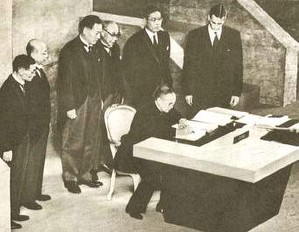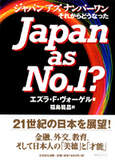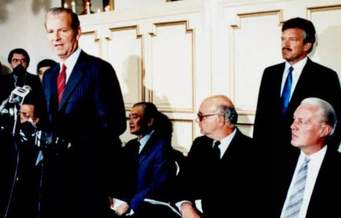It has been a long time since the abolition of the Japan-US Security Treaty, which is the core of the departure from dependence on the United States, has been removed from the issue of national elections. In the general election held at the end of October 2021, the debate over the security treaty was naturally avoided. Very seriously, though modern Japan is about to enter its third phase, there is no prospect of independence from the United States. To be note, Japan is the only Asian country involved in the US's strategy to contain China as a protagonist along with Britain and Australia, and in addition, military tensions with China over the Senkaku Islands territorial sovereignty issue associated with the Taiwan contingency have been fueled. The Japanese media has been relentlessly repeating reports such as "China strengthening supremacy" and "Chinese Communist Party with tyranny to suppress democratization and human rights" every day for more than 10 years.
A major support for the US-China Cold War is the US-Japan Security Treaty and Japan's 2015 new security legislation, which allows the exercise of collective self-defense. For Japanese voters, the US-Japan Security Treaty is now a given matter, and there is a feeling that it is out of the question, such as advocating abolition. Even the opposition parties will not be able to fight together if they appeal for the abolition of security in the national election, and the Japanese Communist Party, which is the only party platform that advocates the abolition of the security treaty, said in the previous general election, "In the coalition government we are aiming for, we do not seek the abolition of the security treaty as a consensus point." That is called a kind of policy atrophy. However, undoubtedly the Japan-US Security Treaty has been bringing the disaster to Japanese to be called a chronic disease of postwar Japan. And it is the cause of Japan's economic stagnation and relative poverty for 30 years after the end of the Cold War and the bursting of the bubble economy. This article ( Thinking of Third Phase of Modern Japan 2) is the first step toward presenting a perspective to re-emerge security abandonment and independence toward the United States.
Note: Please refer to the above-mentioned article "Seeing through the US-UK strategy to contain China and play with Japan: Thinking of the Third Phase of Modern Japan1".
■ Bottle lid to contain Japan: Japan-US Security Pact
The ruling party and the Liberal Democratic Party, which are dominated by pro-US conservatives who eliminate Japan-US security abolitionists as "anti-Japan," and the Japanese government-government property triangle, which claims that "security is the cornerstone of Japanese diplomacy," are "security surrounding Japan, which is becoming more severe." For the environment, the Japan-US alliance = the security treaty is the lifeline, "he said. However, their true intentions are not always there. This is because unless the US-Japan security behaves as if it were an object of worship, the interests of oneself and the organization cannot be protected. It is because he is afraid that he will surely lose his position and vested interests if he makes his inner feelings public. Indeed, Japan's power center is entrenched with a conservative consciousness for self-protection and organizational defense, and no fragment of the spirit of change can be found there.
When I was based in Southeast Asia in the mid-1990s, a Japanese diplomat (a counselor at the time) who worked at a diplomatic mission abroad asked me, "'(Japan-US security) bottle lid'. You know." rice field. In the off-record discussion at that time, the powerlessness of Japan's diplomacy under the control of Washington was confessed in a fragmentary manner, and the shared feelings of the Japanese diplomacy staff were conveyed. This "bottle lid" theory, which an executive of the Japanese Ministry of Foreign Affairs talked about in a self-deprecating manner, is by no means new. It is old with the conclusion of the former Security Treaty in 1951.
 September 8, 1951. US Secretary of State Dean Gooderham Atchison in a room of an old servant club on the northern outskirts of San Francisco, in contrast to the glamorous appearance of the Opera House, which was the venue for signing the Peace Treaty for Japan's independence. The former Japan-US Security Treaty was first signed by Shigeru Yoshida, the Prime Minister of Japan, in the presence of four representatives from the United States. The five-article treaty was based on the continuation of the US military stationing in Japan, the deadline for the treaty was not set, and the US defense obligation to Japan was ignored. The fact that this treaty is for the de facto continuation of the US occupation of Japan is due to the then Secretary of State John Foster Dulles, who witnessed the signing of Yoshida's Security Treaty with Acheson. The right to stay in the place for as long as you want "is explicitly shown in the overly famous statement.
September 8, 1951. US Secretary of State Dean Gooderham Atchison in a room of an old servant club on the northern outskirts of San Francisco, in contrast to the glamorous appearance of the Opera House, which was the venue for signing the Peace Treaty for Japan's independence. The former Japan-US Security Treaty was first signed by Shigeru Yoshida, the Prime Minister of Japan, in the presence of four representatives from the United States. The five-article treaty was based on the continuation of the US military stationing in Japan, the deadline for the treaty was not set, and the US defense obligation to Japan was ignored. The fact that this treaty is for the de facto continuation of the US occupation of Japan is due to the then Secretary of State John Foster Dulles, who witnessed the signing of Yoshida's Security Treaty with Acheson. The right to stay in the place for as long as you want "is explicitly shown in the overly famous statement. The fact that the essence of the Japan-US Security Treaty is "the lid of the bottle that contains Japan" is the retrospective of Dulles quoted in the above-mentioned article "The US-UK strategy to contain China and play with Japan. I'm talking without a hitch, so I'll re-quote a part. "The Japan-US Security Alliance, which re-arms Japan and incorporates it into its western camp, while the dilemma of not being able to trust the Japanese, is to permanently subordinate Japan to the United States. It was solved by building.
" Even 75 years after the war, the "Greater East Asia War is a war of justice" and "Tokyo Trial" The victorious nation's gaze at this country, where the claim that "is an unjust judgment of the winner" springs up on the right-wing argument, is harsh. It is condensed in Dulles's words, "I can't trust the Japanese." On June 26, 1945, the distrust of the victorious nations, including the United States and Britain, was inherited by the fact that the name of Japan has not been deleted from the enemy state clause contained in the UN Charter signed by 51 countries in the same San Francisco to this day.
The Japan-US Security Treaty, which Dulles exposed his true intentions to "permanently subordinate Japan to the United States," continues to be "the lid of a bottle that contains Japan, which is extremely dangerous." Since the LDP administration (November 1982-November 1987), Yasuhiro Nakasone, the term "Japan-US alliance" that the Japanese government has used without shame to pretend to be on an equal footing with the United States is the most fictitious.
By the way, the translation of "the United Nations", which means the Allies of World War II (victorious nation), into the United Nations and Japanese is a deliberate mistranslation of the Japanese government, which turns away from the fact of the defeat. The expression "Japan-US alliance" is also part of the US-UK operation on Japan, and "Japan's permanent membership in the UN Security Council," which has been discussed occasionally since the 1990s, must be seen as a similar attempt. .. If the UN Enemy State Clause is deleted, it will be taken as a signal that "Japanese people can be trusted", and only then will Japan end the postwar period. Again, unless the bottle lid = Japan-US security is resolved, the defeated nation, Japan, will continue semi-permanently after the war.
■ Japan bashing and burden sharing request
It was 40 years after the signing of the former Security Treaty in September 1951 that the overt statement that "Japan-US security is the lid of a bottle" was first made public. Maj. Gen. Henry C. Stackpole, Commandant of the Marine Corps in Japan, made the following statement in the Washington Post on March 27, 1990:
"If the US military withdraws, Japan will further strengthen its military power, which already has considerable capabilities. No one wants Japan's re-arming. So we (US military) (Japanese militarization) It's the lid of the bottle. "
The US government has criticized this statement. But that was ostensibly. John Dulles' unwieldy distrust of Japan quoted above was only revived 40 years later by an active US military commander with the word "bottle lid". In the 1980s and 1990s, Washington recognized Japan's economic power as a serious alternative to the Soviet military power in the background of such statements being published in the U.S. leading newspaper the year before the collapse of the Soviet Union at the end of the Cold War. I have had it.

Ezra Vogel's book "Japan as Number One: Lessons for America" was published by Harvard University Press in May 1979. Postwar Japan Analyzing the factors of high economic growth and praising Japanese-style management, this book, which made the Japanese elite ecstatic by becoming a best-selling book with over 700,000 copies, is "Japan as number one". The intention was also hidden. In fact, the final chapter is "Lessons to the United States", which is a symptom of the boiling Japan-US trade friction and the intensifying Japan as number one (Japan as number one) in the 1980s. If you look back at the book, you would first call on the American elite, who threatened to be swallowed by Japanese products, to "know the enemy" in order to revenge in Japan.
In 1982, the book "MITI and the Japanese Miracle: the Growth of Industrial Policy, 1925-1975, Stanford University" by Chalmers Ashby Johnson which was once celebrated as a proponent of revisionism (Japanese heterogeneity). Press, 1982). ”Was published, providing Washington with the wisdom to deal with the ever-increasing economic conflict with Japan. The US government will work together with the federal parliament to strengthen the competitiveness of US industry, and will devise measures to crush Japan, which has become an actual enemy from a potential enemy.
Professor Christopher Layne (International Politics) of Texas A & M University briefly describes the "Japan-US alliance" during the Cold War as "a double containment measure to contain Japan with the Soviet Union." (The Peace of Illusions: American Grand Strategy from 1940 to the Present, Cornell UP, 2006).
Following the collapse of one of the enemies to be contained, the Soviet Union, the United States embarks on the destruction of Japan's unique economic system, which "should be contained as another enemy." The aim was to dismantle the Japanese-style management system that inherited the 1940 wartime total power system advocated by Yukio Noguchi and others. Lifetime employment, seniority, in-house unions, huge companies under the umbrella of a huge number of subcontractors, corporate groups centered on the main bank, groupist loyalty of employees to companies, etc. With the enactment of the dispatched labor law in the 1980s, the mass creation of non-regular dispatched workers led to the destruction of Japanese employment practices, and the labor union forces centered on public and public labor were weakened by privatization such as the National Railways and Denden Corporation, and labor was carried out. In the name of unification of the front, a "coalition" was formed to dismantle Japan's anti-American resistance. In the 1990s, the demand for sharing responsibility (bardon sharing) increased further in the wake of the Gulf War, and the SDF was dispatched overseas and the US military became a complementary unit on a global scale.
■ U.S. economic security policy to dismantle strange Japan
First, the United States will put pressure on Japan to "reduce the trade surplus with the United States." In 1983, the Japan-US Yen-Dollar Committee was established to liberalize large interest rates, abolish restrictions on the conversion of foreign currencies into the yen, and allow Japan to enter the Japanese trust business on its own. Japan was forced to step into financial liberalization and eventually sprouted a bubble economy.
 On September 22, 1985, at the Plaza Hotel in New York, a meeting of finance ministers and central bank governors of five advanced countries (G5) was held, and the United States forced Japan to drastically revalue the yen against the dollar. Five people attended as the Minister of Finance were West German Treasury Minister Gerhard Stoltenberg, French Treasury Minister Pierre Bérégovois, US Treasury Secretary James Baker = standing on the left in the photo, responding to reporters =, British Treasury Minister Nigel Lawson, and Japan's Treasury Minister Noboru Takeshita = sitting behind Secretary Baker =.
On September 22, 1985, at the Plaza Hotel in New York, a meeting of finance ministers and central bank governors of five advanced countries (G5) was held, and the United States forced Japan to drastically revalue the yen against the dollar. Five people attended as the Minister of Finance were West German Treasury Minister Gerhard Stoltenberg, French Treasury Minister Pierre Bérégovois, US Treasury Secretary James Baker = standing on the left in the photo, responding to reporters =, British Treasury Minister Nigel Lawson, and Japan's Treasury Minister Noboru Takeshita = sitting behind Secretary Baker =. A year later, the value of the Japanese yen against the US dollar doubled. The angry torrent of Japan money that swept the world symbolized by the acquisition of NY Rockefeller Center by Mitsubishi Jisho made the Japanese realize "Japan as number one", and said, "The purchase of US bonds in Japan has US finances. "The Japanese are feeding Americans who are over-consuming and have stopped making things because their savings rate is abnormally low," he began to look down on the United States. Prolonged monetary easing amplified by US pressure was the cause of Japan's bubble economy (1986-1990), and was a trap for the US to start crushing Japan in earnest.
Needless to say, James Baker, who was Secretary of the Treasury under the Reagan administration, and his entourage are the creators of the Plaza Accord. The Baker clan is the leader of the George Bush clan, and it is said that the Rockefeller conglomerate reigns over the Bush clan. There is an anecdote of how Baker, who became Secretary of State under the Bush administration, was hostile to Japan.
In July 1991, the United States violently harassed Malaysian Prime Minister Mahathir, who had proposed a look-east policy that paraphrased "Learn from Japan" and advocated the establishment of the East Asian Economic Council (EAEC) without the United States led by Japan. According to several Malaysian government sources at the time, Secretary of State Baker, who visited Kuala Lumpur, told the Prime Minister, "The Pacific Ocean should not be separated into east and west. Our real enemies are Japan and communist China. It is dangerous to keep Japan away from the hands of the United States.".
For this reason, ASEAN approved the East Asian Economic Conference (EAEC) initiative in October 1991 as a mere meeting place. However, in December 1997, the ASEAN Summit Meeting and the Tripartite Summit Meeting of Japan, South Korea, and China were held as ASEAN + 3, and became a de facto EAEC. The impatient United States participated in the Asia-Pacific Economic Conference (APEC) for the first time in 1993 and interrupted the East Asia Summit that began in 2005. Japan has followed suit, saying that "regional economic integration without the United States is meaningless," and is restraining China's leading movements in the East Asian region together with the United States.
The Bill Clinton administration (1993-2001), which was launched shortly after the collapse of Japan's bubble economy, created the National Security Council (NEC) alongside the National Security Council and played a central role in formulating US economic security policy. .. It was an economic security policy against Japan. It has identified Japan as an unfair trading country and has established Super 301, a comprehensive trade law clause that requires the US Trade Representative (USTR) to impose sanctions on the grounds that bilateral negotiations cannot be concluded.
In addition, he expanded the Japan-US Structural Talks, which was established in September 1989 to discuss Japan's trade barriers and domestic economic problems in the name of correcting trade imbalances between Japan and the United States, to comprehensive economic talks at the 1993 Japan-US Summit. bottom. The Japanese side rebelled as a way to managed trade, but at the time of field-specific discussions on market opening, the Japanese side swallowed the introduction of the quantity index. Since then, pressure on Japan has been pushed down, and the US side has demanded deregulation one after another in individual fields.
The US and British financial capital bought up Japanese companies whose stock prices plummeted and suffered from the huge amount of bad debt disposal due to the bursting of the bubble economy. It is the emergence of vultures that "will eat up Japan for 30 years." The US revenge on Japan will go on at the same time in terms of criticism of free riding on security = military aspect of requesting the Self-Defense Forces to be dispatched overseas and full-scale opening of the market = major deregulation.
( to be continued)
rice fieldの詳細
rice field
